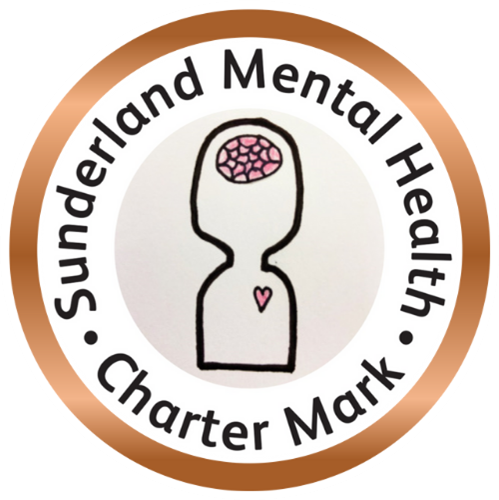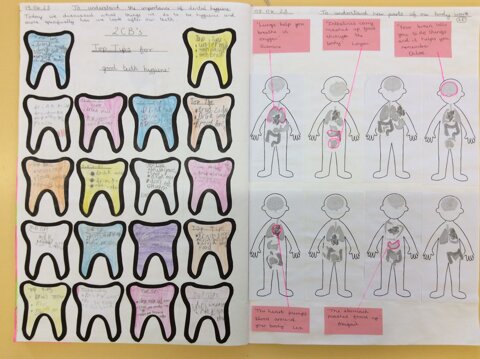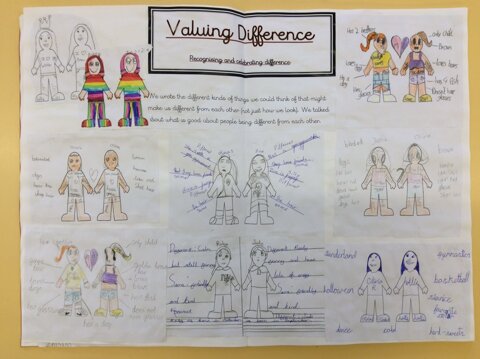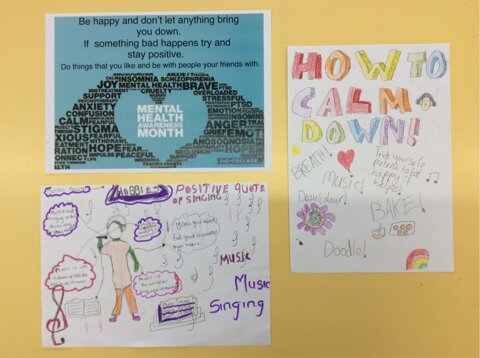PSHCE Examples
Enjoy achieving together…to be the best that we can be!
Intent
At Usworth Colliery Primary, the acquisition of skills, attitudes, values and understanding is essential to ensure the entitlement of all pupils’ spiritual, moral, cultural and social (SMSC) development. We seek to embed our core values of safety, care, resilience and aspirations through positive relationships, self-awareness and through our PSHCE curriculum.
Successful PSHCE education is achieved through formal and informal learning and from experiences throughout school life, including the direct and indirect teaching of the British Values. PSHCE lessons throughout our school enable our children to become independent thinkers who are confident to challenge the unknown and think deeply about the ‘real’ issues that they will be faced with as they leave school and go on to live their adult lives. We believe that children leave our school with our shared core values of resilience, care, safety and aspirations deeply rooted. Alongside the British Values, our curriculum prepares them for life in the 21st century with a particular focus on developing good mental health, emotional wellbeing and happiness. We empower children to become leaders who are flexible in their thinking who will explore and challenge social injustice and question deep-rooted beliefs to create a more equal society for everyone. Through an inspired love of learning, we equip children with the correct tools to develop their own characters to be respectful, tolerant and active members of society by strengthening their life skills so that they can become citizens of the future. We continually provide our children with opportunities for them to learn about rights and responsibilities and appreciate what it means to be a member of the diverse society in which we live.
Implementation
At UCPS we use the SCARF (Safety Caring Achievement Resilience Friendship) scheme of work from CORAM Life Education. We decided on this scheme because it provides a whole-school approach to delivering quality PSHCE lessons that encompasses our school intent as well as promoting good behaviour, safety, achievement, wellbeing and happiness. It is mapped to the PSHE Association programmes of study and meets the DoE statutory requirements for SMSC, the British Values and the statutory Relationship and Sex Education guidance. Our curriculum has been organised to promote age appropriate content and progression throughout each year group in a ‘spiral’. The PSHCE long term plan clearly shows which year groups are dedicated which areas of learning (where appropriate) and the progression of subjects from EYFS, Key Stage 1 and Key Stage 2.
As you walk around Usworth Colliery, you may not see a PSHCE lesson being taught in the traditional way. As a staff, we understand that PSHCE needs to be taught at the point of learning and that opportunities to discuss PSHCE can arise at any point during the school day. PSHCE can be taught discretely through other subjects and curriculum areas; through pastoral care and guidance carried out by the class teacher or the THRIVE behaviour team; and in dedicated PSHCE activities and school events or through assemblies (whole school, class or key stage).
Impact
PSHCE and RSE education supports our pupils to achieve their academic and social potential. By the end of Y6, all of our children should have met the key outcomes of our PSHCE curriculum and therefore acquired the skills and attributes to help them build positive relationships, with particular reference to friendships, family relationships, and relationships with other children and adults. They will have the necessary skills to stay healthy and safe and be prepared for life and work in modern day Britain.

PSHCE in the Early Years Foundation Stage
In EYFS, children are taught PSED (Personal Social and Emotional Development) through adult interaction and modelling. Through continuous provision they are allowed the freedom to explore and manage emotions, develop a positive sense of self and well-being, and through this develop their confidence in their own abilities. Through role-play, they learn about how to be a good friend and how to look after and care for their whole bodies, physically, mentally and emotionally.
Appendix:
Relationship and Sex Education: Relationships and sex education (RSE) and health education - GOV.UK (www.gov.uk)
Relationship and Sex Education FAQs: Relationships education, relationships and sex education (RSE) and health education: FAQs - GOV.UK (www.gov.uk)
EYFS Development Matters: Development Matters - Non-statutory curriculum guidance for the early years foundation stage (publishing.service.gov.uk)
British Values and SMSC: Promoting fundamental British values through SMSC - GOV.UK (www.gov.uk)
OFSTED: https://reports.ofsted.gov.uk/provider/21/108799
PSHCE
Example lessons from SCARF




